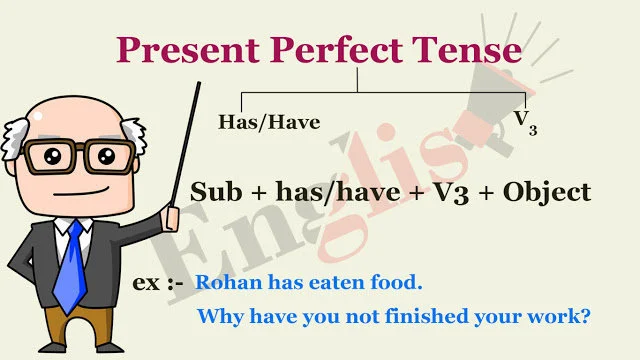Present
Perfect Tense is the subpart of Present Tense which is generally used to
express an action that has done or completed. Whenever we are required to
conversate in English with discussing a matter which has happened recently (in
present) then we use Perfect Tense for telling the matter indeed.
Definition of Present Perfect
can be understood as An action is complete or finished to a certain point of
time.
Learn Present Perfect In Hindi
There are a couple of ways to understand the Present Perfect Tense.
But getting the best way is just something else. Learn Present Perfect Tense in
Hindi with englispeaker.
This is so easy and simple way to understand Tenses for every
Hindi or non-Hindi speaker. But before going to Present
Continuous Tense, make sure that you have at least basic knowledge of Hindi to avail such an easy
method. Speaking Hindi is not compulsory but knowing it will help you to
learn Present Continuous.
Some terms which are used by Present Perfect and are important
to know or learn or remember. Terms are mentioned below: -
Has/Have – as helping verb
Third form of Verb (V3)– as main verb
6 conditions
Sentences end in Hindi by ा है, ी है, े है, चुका है, चुकी है, चुके है, आदि |
6 conditions
Simple –
Sub + has/have + V3 + Object
e.g. Sumit has done his homework.
Negative –
Sub + has/have + not + V3 + Object
e.g. Sumit has not done his homework.
Interrogative –
Has/Have + sub + V3 + Object?
e.g. Has sumit done his homework?
Interrogative negative –
Has/Have + sub + not + V3 + Object?
e.g. Has sumit not done his homework?
Double Interrogative –
W/H + Has/Have + sub + V3 + Object?
e.g. When has sumit done his homework?
Double Interrogative negative –
W/H + has/have + sub + not + V3 + Object?
e.g. Why has sumit not done his homework?
Present
Perfect Tense Rules
· It is generally used to indicate completed activities in the immediate
past. It is a mixture of present and past. It always implies a strong
connection of the past with the present.
e.g. ──
He has just finished his work.
He has just finished his work.
· The most important point is that it is used with past actions whose
time is not given and not definite.
e.g. ──
He came here. (Wrong)
He came here. (Wrong)
He has come here.
(Right)
He came here yesterday. (Right)
· It is used with the adverbs like ever, just, recently, already, yet, so
far, of late, lately, by the time, for, etc.
e.g. ──
He has already finished the work.
He has already finished the work.
I have just watched that movie.
· It can never be used with words like last, ago, yesterday, before,
back, formerly, fixed time, etc.
e.g. ──
He has come here yesterday. (Wrong)
He has come here yesterday. (Wrong)
He came here yesterday. (Right)
India has won last year. (Wrong)
India won last year. (Right)



